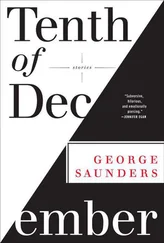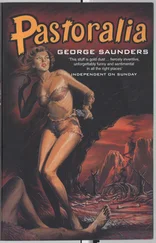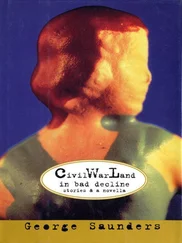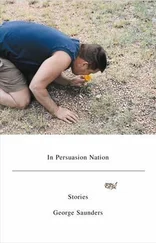Epstein, op. cit.
These, and other tasty morsels, were spread about in such profusion that the joint attack of the thousand or more guests failed to deplete the array.
Kimmel, op. cit.
Yet there was no joy in the evening for the mechanically smiling hostess and her husband. They kept climbing the stairs to see how Willie was, and he was not doing well at all.
Kunhardt and Kunhardt, op. cit.
IV.
The rich notes of the Marine Band in the apartments below came to the sick-room in soft, subdued murmurs, like the wild, faint sobbing of far-off spirits.
Keckley, op. cit.
Willie lay in the “Prince of Wales” bedroom with its dark purple wall hangings and golden tassels.
Epstein, op. cit.
The cheeks of his handsome round face were inflamed with fever. His feet moved restlessly beneath the maroon coverlet.
In “History Close at Hand,” edited by Renard Kent, account of Mrs. Kate O’Brien.
The terror and consternation of the Presidential couple may be imagined by anyone who has ever loved a child, and suffered that dread intimation common to all parents, that Fate may not hold that life in as high a regard, and may dispose of it at will.
In “Selected Civil War Letters of Edwine Willow,” edited by Constance Mays.
With Fear clutching at their hearts, they went downstairs once more to hear the singers of the evening, the Hutchison family, give a frighteningly real rendition of the song “Ship on Fire,” which required simulation of a violent thunderstorm at sea, the frightened screams of the trapped passengers, a mother pressing her babe to her bosom of snow, “a tramp, a rout, an uproar of voices—‘Fire! Fire!’ ”
The cheeks of the sailors grew pale
at the sight — and their eyes glistened with the gleam
of the light — and the smoke in thick wreaths mounted
higher and higher — Oh God it is fearful to perish by fire!
Kunhardt and Kunhardt, op. cit.
The noise and clatter were such that to be understood it was necessary to shout. Carriages continued to arrive. Windows were thrown open and groups formed around them, hoping for a gust of chill night air. An air of happy panic pervaded the room. I began to feel faint and believe I was not alone in this. Matrons were collapsed here and there in armchairs. Drunken men examined paintings rather too intensely.
Garrett, op. cit.
Wild shrieks rang out.
Sloane, op. cit.
One fellow stood in perfect happiness, orange-trousered, blue coat flung open, feasting in-place as he stood at the serving table like some magnificent Ambrussi, finally found the home of his dreams.
Wickett, op. cit.
The flower arrangements of history! Those towering bursts of colors, so lavish — soon tossed away, to dry and go drab in the dim February sun. The animal carcasses — the “meat”—warm and sprig-covered, on expensive platters, steaming and succulent: trucked away to who-knows-where, clearly offal now, honest partial corpses once again, after brief elevation to the status of delight-giving food! The thousand dresses, laid out so reverently that afternoon, flecks of dust brushed off carefully in doorways, hems gathered up for the carriage trip: where are they now? Is a single one museum-displayed? Are some few yet saved in attics? Most are dust. As are the women who wore them so proudly in that transient moment of radiance.
In “The Social Life of the Civil War: Frolic, Carnage, Extirpation” (unpublished manuscript), by Melvin Carter.
V.
Many guests especially recalled the beautiful moon that shone that evening.
In “A Season of War and Loss,” by Ann Brighney.
In several accounts of the evening, the brilliance of the moon is remarked upon.
In “Long Road to Glory,” by Edward Holt.
A common feature of these narratives is the golden moon, hanging quaintly above the scene.
In “White House Soirees: An Anthology,” by Bernadette Evon.
There was no moon that night and the sky was heavy with clouds.
Wickett, op. cit.
A fat green crescent hung above the mad scene like a stolid judge, inured to all human folly.
In “My Life,” by Dolores P. Leventrop.
The full moon that night was yellow-red, as if reflecting the light of some earthly fire.
Sloane, op. cit.
As I moved about the room I would encounter that silver wedge of a moon at this window or that, like some old beggar who wished to be invited in.
Carter, op. cit.
By the time dinner was served, the moon shone high and small and blue above, still bright, albeit somewhat diminished.
In “A Time Departed” (unpublished memoir), by I. B. Brigg III.
The night continued dark and moonless; a storm was moving in.
In “Those Most Joyful Years,” by Albert Trundle.
The guests began to depart as the full yellow moon hung among morning stars.
In “The Washington Powers,” by D. V. Featherly.
The clouds were heavy, leaden, and low, of a dull roseate color. There was no moon. My husband and I paused to look up at the room in which young Lincoln suffered. I said a silent prayer for the health of the lad. We found the carriage and made for home, where our own children, thanks be to a merciful God, were resting peacefully.
In “One Mother Remembers,” by Abigail Service.
VI.
The last guests lingered almost until dawn. In the basement, servants worked all night to clean up, drinking leftover wine as they toiled. Hot, tired, and drunk, several of them began arguing, which led to a fistfight in the kitchen.
Von Drehle, op. cit.
I heard it said several times, in hushed whispers: it was wrong to engage in such merry-making when Death itself had made itself known at the door, and perhaps the more modest the public life at such a time, the more apposite.
In “Collected Wartime Letters of Barbara Smith-Hill,” edited by Thomas Schofield and Edward Moran.
The night passed slowly; morning came, and Willie was worse.
Keckley, op. cit.
VII.
Yesterday around three there came a considerable procession — perhaps twenty carriages and nowhere to put them — They stopped on the lawns of the houses and sat aslant on the cemetery land by the fence — And who should alight from the hearse but Mr. L. himself, whom I could recognize from his likeness — But sore bent down and sad in countenance, almost needing to be urged along, as if reluctant to enter that drear place — I had not yet heard the sad news & was momentarily puzzled but soon enough the situation being made clear I prayed for the boy & family — it has been much in the papers regarding his illness and it has had the unhappy outcome now — The carriages cont’d to arrive over the next hour until the street was impassable.
The large crowd disappeared inside the chapel and from my open window I could hear the proceedings within: music, a sermon, weeping. Then the gathering dispersed & the carriages moved off, several becoming stuck & requiring unsticking, the street & lawns being left a considerable mess.
Then today, again wet & cold, and, around two, a single small carriage arrived & stopped at the cemetery gate & again the President got out, this time accompanied by three gentlemen: one young & two OLD. — they were met at the gate by Mr. Weston & his young assistant & all went off to the chapel — Before long, the assistant being joined by a helper, they were seen to be managing a small coffin on to a handcart & off the sad party went, cart in the lead, the President & his companions plodding along behind — their destination appeared to be to the northwest corner of the cemetery. The hill there being steep and the rain continuing, it made a strange joining of somber melancholy & riotous awkwardness, the assistants struggling to keep the tiny coffin upon the cart—& at the same time all parties, even Mr. L., diligently mincing to maintain their footing on the rainslick grass.
Читать дальше












